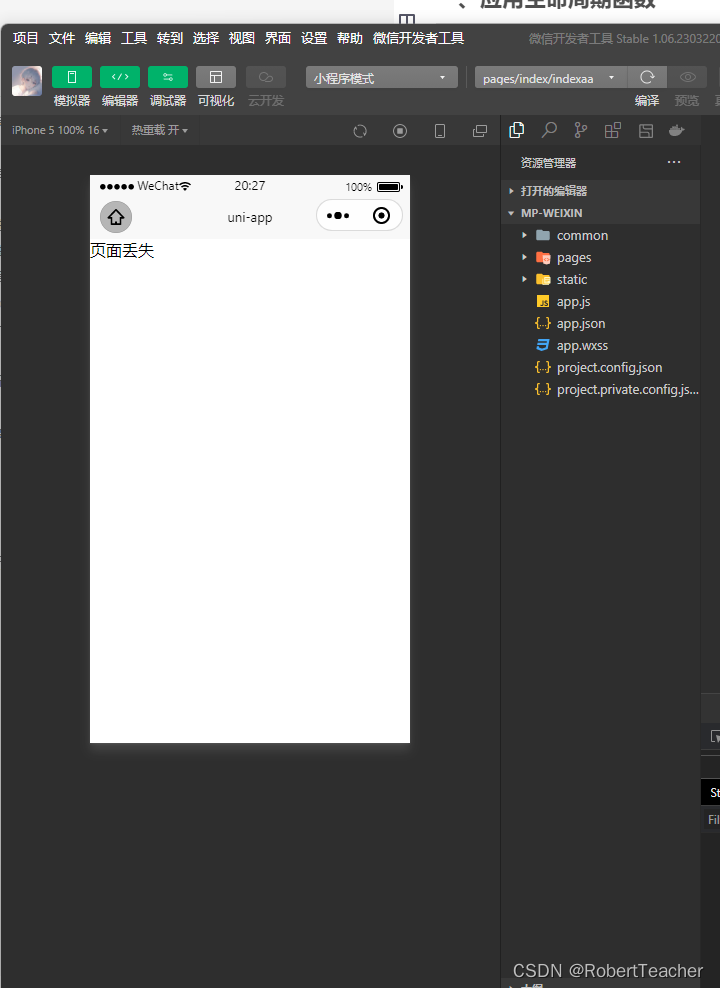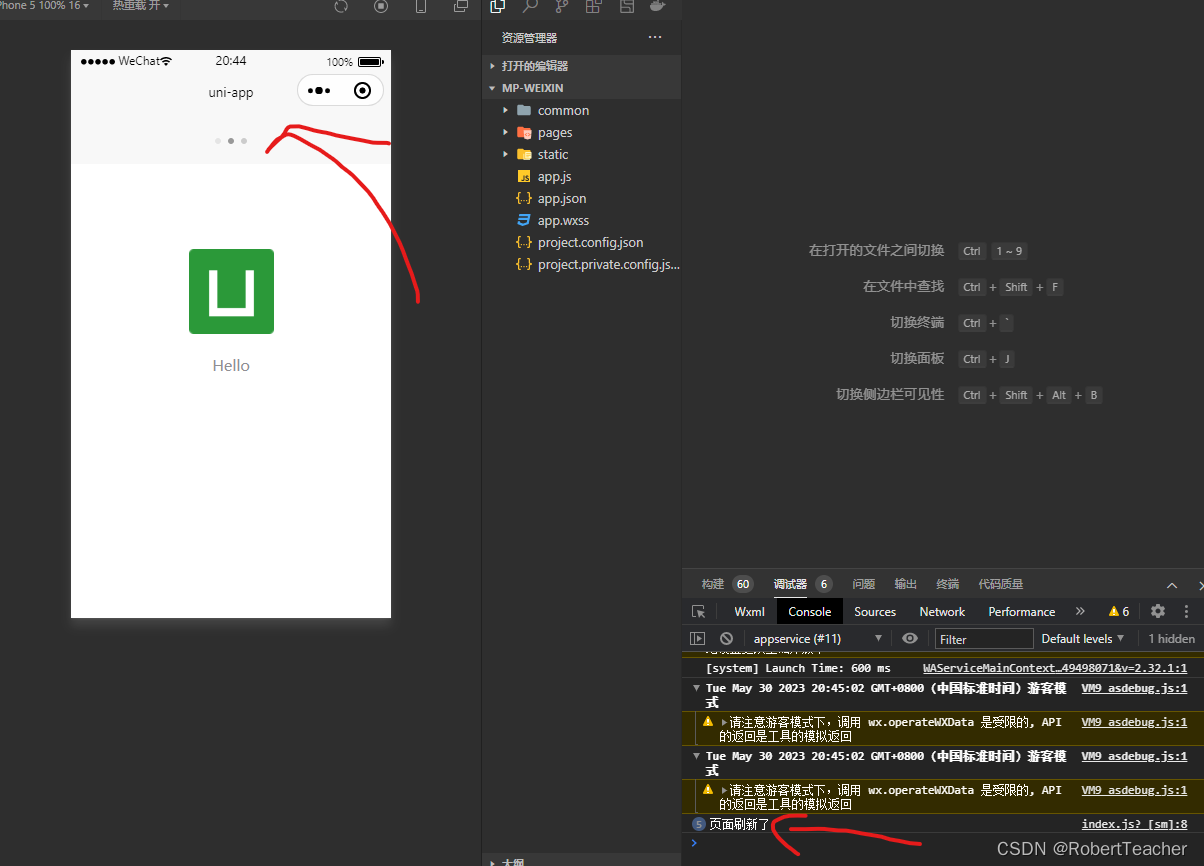Detailed explanation of uni-app application life cycle function
Detailed explanation of uni-app application life cycle function
Article directory
foreword
Detailed explanation of uni-app application life cycle function of UNI-APP learning series
1. Application lifecycle functions
| Function name | illustrate |
|---|---|
| onLaunch | Triggered when uni-appthe initialization is complete (the global only triggers once) |
| onShow | When uni-appstarted, or enters the foreground display from the background |
| onHide | When uni-appentering the background from the foreground |
| onError | uni-appTriggered when an error is reported |
| onUniNViewMessage | To nvuemonitor the data sent by the page, please refer to the communication from nvue to vue |
| onUnhandledRejection | Event listener function for unhandled Promise rejection (2.8.1+) |
| onPageNotFound | There is no listening function on the page |
| onThemeChange | Monitor system theme changes |
- Example:
-
onPageNotFound
- Executed when the page file corresponding to the url cannot be found
onPageNotFound(() => { uni.navigateTo({ url:'/pages/404/index' }) })
The execution effect is shown in the figure below

- Executed when the page file corresponding to the url cannot be found
-
Second, the page life cycle function
| Function name | illustrate |
|---|---|
| onLoad | Monitor page loading, its parameter is the data passed on the previous page, the parameter type is Object (used for page parameter passing), refer to the example |
| onShow | The monitoring page is displayed. Triggered every time a page appears on the screen, including returning from a subordinate page to reveal the current page |
| onReady | Monitor the completion of the initial rendering of the page. Note that if the rendering speed is fast, it will be triggered before the page enters the animation |
| onHide | Listening page hidden |
| onUnload | Monitor page unload |
| onResize | Monitor window size changes |
| onPullDownRefresh | Monitor the user's pull-down action, generally used for pull-down refresh, refer to the example |
| onReachBottom | The event that the page scrolls to the bottom (not the scroll-view scrolls to the bottom), which is often used to pull down the next page of data. For details, see the following notes |
| onPageScroll | Monitor page scrolling, the parameter is Object |
| onNavigationBarButtonTap | Listen to the click event of the native title bar button, the parameter is Object |
| onBackPress | Monitor the page return, return event = {from:backbutton, navigateBack}, backbutton means the source is the back button in the upper left corner or the android back key; navigateBack means the source is uni.navigateBack; detailed description and usage: onBackPress detailed explanation . The Alipay applet can only be triggered by a real machine, and can only monitor the return caused by non-navigateBack, and cannot prevent the default behavior. |
| onNavigationBarSearchInputChanged | Listen to the input content change event of the native title bar search input box |
| onNavigationBarSearchInputConfirmed | Listen to the search event of the native title bar search input box, which is triggered when the user clicks the "Search" button on the soft keyboard. |
| onNavigationBarSearchInputClicked | Listen to the click event of the native title bar search input box (triggered only when the searchInput configuration disabled in pages.json is true) |
- Example:
- onPullDownRefresh
- Executed when the user pulls down in the app and applet
onPullDownRefresh(() => { console.log('页面刷新了'); }) // pages.json 对应页面配置 "enablePullDownRefresh": true

- Executed when the user pulls down in the app and applet
- onPullDownRefresh
Summarize
The above is what I want to talk about today. This article introduces the whole content of the UNI-APP learning series, which explains the uni-app application life cycle functions in detail. I will continue to develop and explain the UNI-APP framework based on VSCode. If you like it, please click to follow, UNI -The APP framework usage tutorial will continue to be updated.